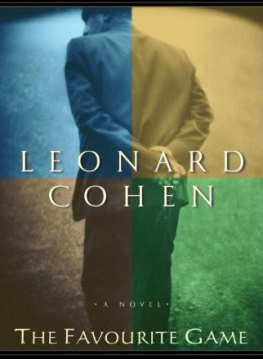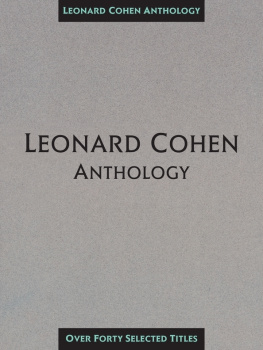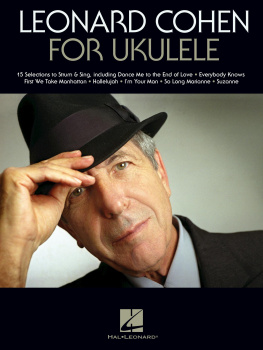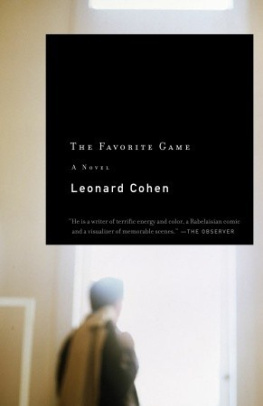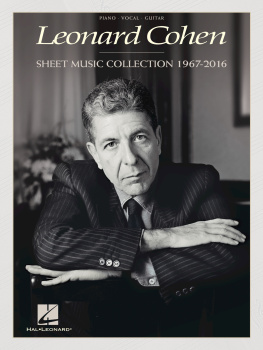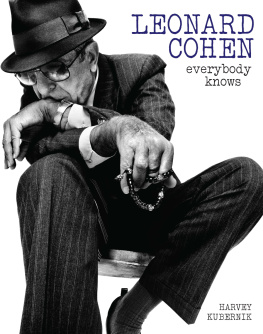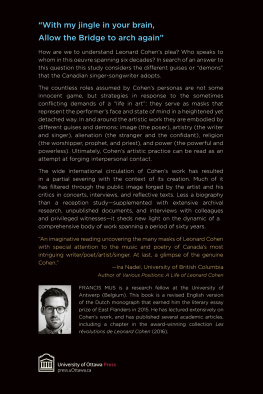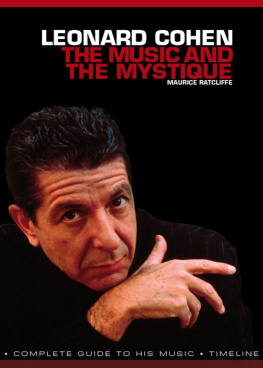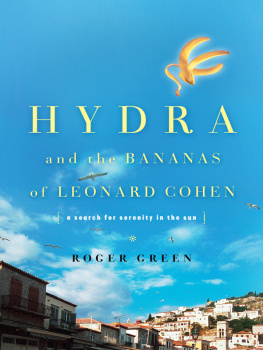Leonard Cohen - Let Us Compare Mythologies
Here you can read online Leonard Cohen - Let Us Compare Mythologies full text of the book (entire story) in english for free. Download pdf and epub, get meaning, cover and reviews about this ebook. year: 2018, publisher: McClelland & Stewart, genre: Non-fiction. Description of the work, (preface) as well as reviews are available. Best literature library LitArk.com created for fans of good reading and offers a wide selection of genres:
Romance novel
Science fiction
Adventure
Detective
Science
History
Home and family
Prose
Art
Politics
Computer
Non-fiction
Religion
Business
Children
Humor
Choose a favorite category and find really read worthwhile books. Enjoy immersion in the world of imagination, feel the emotions of the characters or learn something new for yourself, make an fascinating discovery.

- Book:Let Us Compare Mythologies
- Author:
- Publisher:McClelland & Stewart
- Genre:
- Year:2018
- Rating:4 / 5
- Favourites:Add to favourites
- Your mark:
- 80
- 1
- 2
- 3
- 4
- 5
Let Us Compare Mythologies: summary, description and annotation
We offer to read an annotation, description, summary or preface (depends on what the author of the book "Let Us Compare Mythologies" wrote himself). If you haven't found the necessary information about the book — write in the comments, we will try to find it.
Let Us Compare Mythologies — read online for free the complete book (whole text) full work
Below is the text of the book, divided by pages. System saving the place of the last page read, allows you to conveniently read the book "Let Us Compare Mythologies" online for free, without having to search again every time where you left off. Put a bookmark, and you can go to the page where you finished reading at any time.
Font size:
Interval:
Bookmark:
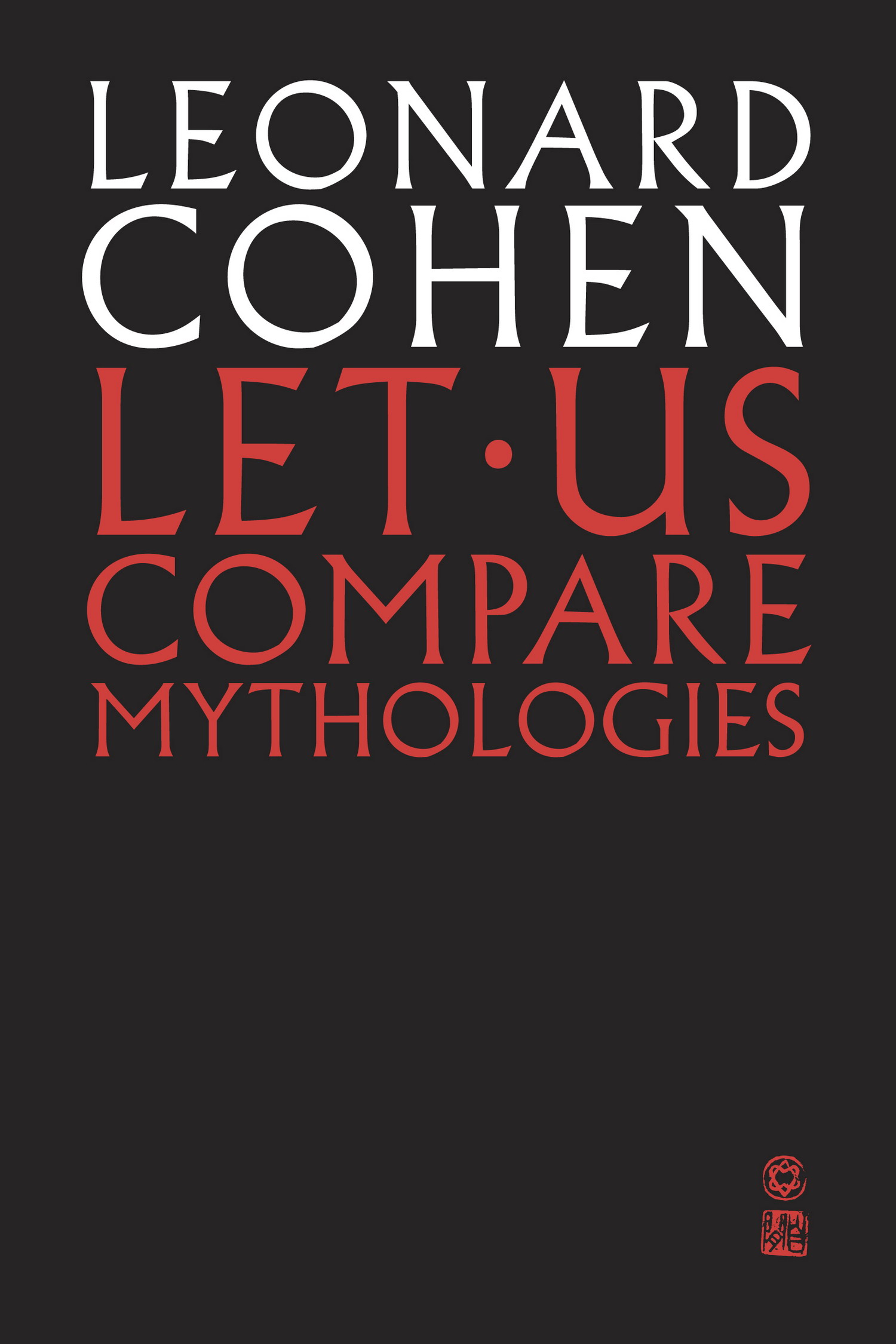
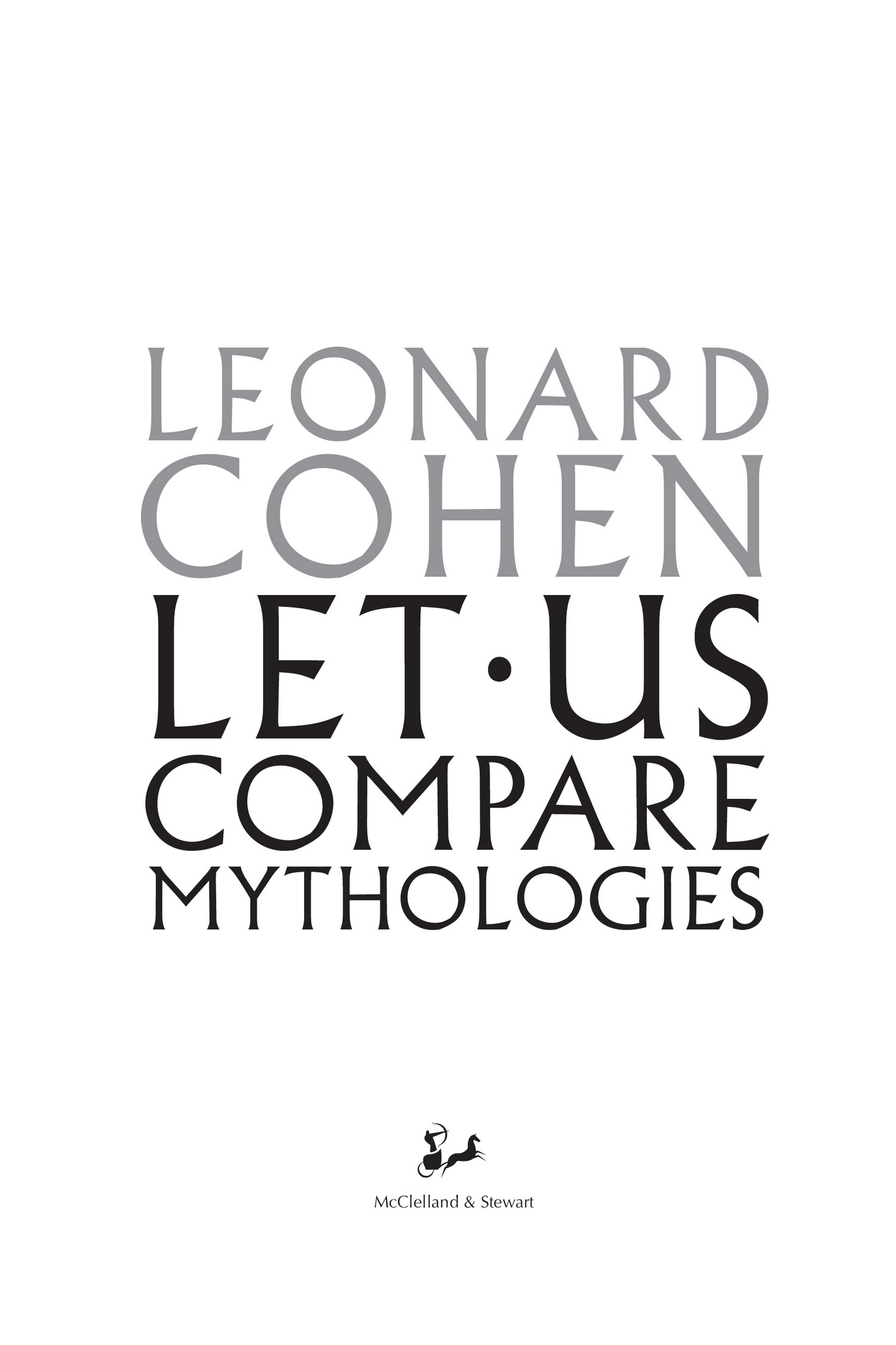
Originally published: Montreal: Contact Press, 1956. Poems. Issued in print and electronic formats. ISBN 9780771024535 (softcover).ISBN 9780771024542 (EPUB) I. Title. PS8505.O22L4 2018 C811.54 C2018-901612-4 C2018-901613-2 Book design by Five Seventeen McClelland & Stewart, a division of Penguin Random House Canada Limited, a Penguin Random House Company www.penguinrandomhouse.ca

Cohen
Listen, and read again, but only one stanza this time and closed the book and laid it on the table. She cannot fade, though thou hast not thy bliss, McCaslin said: Forever wilt thou love, and she be fair. Hes talking about a girl, he said. He had to talk about something, McCaslin said. The Bear, by William Faulkner
But he could not hang softly long, your fighters so proud with bugles, bending flowers with their silver stain, and when I faced the Ark for counting, trembling underneath the burning oil, the meadow of running flesh turned sour and I kissed away my gentle teachers, warned my younger brothers. Among the young and turning-great of the large nations, innocent of the spiked wish and the bright crusade, there I could sing my heathen tears between the summersaults and chestnut battles, love the distant saint who fed his arm to flies, mourn the crushed ant and despise the reason of the heel. Raging and weeping are left on the early road. Now each in his holy hill the glittering and hurting days are almost done. Then let us compare mythologies.
I tell you, my people, the statues are too tall. Beside them we are small and ugly, blemishes on the pedestal. My name is Theodotus, do not call me Jonathan. My name is Dositheus, do not call me Nathaniel. Call us Alexander, Demetrius, Nicanor Have you seen my landsmen in the museums, the brilliant scholars with the dirty fingernails, standing before the marble gods, underneath the lot? Among straight noses, natural and carved, I have said my clever things thought out before; jested on the Protocols, the cause of war, quoted Bleistein with a Cigar. And in the salon that holds the city in its great window, in the salon among the Herrenmenschen, among the close-haired youth, I made them laugh when the child came in: Come I need you for a Passover Cake.
And I have touched their tall clean women, thinking somehow they are unclean, as scaleless fish. They have smiled quietly at me, and with their friends I wonder what they see. O cities of the Decapolis, call us Alexander, Demetrius, Nicanor Dark women, soon I will not love you. My children will boast of their ancestors at Marathon and under the walls of Troy, and Athens, my chiefest joy O call me Alexander, Demetrius, Nicanor
Font size:
Interval:
Bookmark:
Similar books «Let Us Compare Mythologies»
Look at similar books to Let Us Compare Mythologies. We have selected literature similar in name and meaning in the hope of providing readers with more options to find new, interesting, not yet read works.
Discussion, reviews of the book Let Us Compare Mythologies and just readers' own opinions. Leave your comments, write what you think about the work, its meaning or the main characters. Specify what exactly you liked and what you didn't like, and why you think so.


